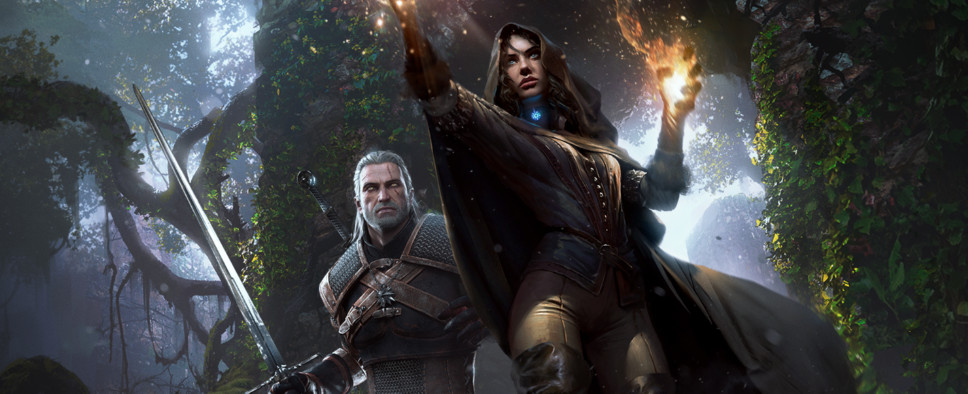The Witcher 3: Wild Hunt Review
-
Category: ReviewsHits: 31713

Article Index
Introduction
I have never been as glad to eat crow as I am now, as I write this review for The Witcher 3: Wild Hunt, the threequel that puts the cap on the videogame saga of Geralt of Rivia, the monster slayer originally created by renowned Polish fantasy author Andrzej Sapkwoski.
Back in March of 2013, when the title was announced as an open-world game, I immediately lowered my expectations. As talented as the folks of CD Projekt RED are, open-world games tend to be massive undertakings that require sacrifices compared to more linear titles. The bigger they are, the bigger the sacrifices, and The Witcher 3 promised to be a very, very big title.
In my mind there were two, very likely possibilities: The Witcher 3 would come out as either a massively unpolished, nigh-unfinished title, CD Projekt's own Gothic 3, or as a game that sacrificed the focus on storytelling and quest design of the first two in favor of cookie-cutter, easy-to-design quests.
And yet, somehow, CD Projekt has managed to pull it off. A few small sacrifices might have been made along the road, yes, but this is still a Witcher title through and through, only on a massive scale that rivals big AAA productions. And it's very, very good.
Story and Writing
The Witcher 3: Wild Hunt picks up about six months after the end of The Witcher 2. Geralt, with his memories now fully recovered and free of his obligations to King Foltest and Vernon Roche, is reached by a letter from his old flame, Yennefer. Not one to ignore a call from his sorceress lover, Geralt sets on a journey with the help of his Witcher mentor Vesemir, who he meets along the way.
That's, in short, the initial setup for the game, though it doesn't take long for the action to change focus, as Geralt is hired by the Emperor of Nilfgaard Emhyr Var Emreis (voiced by Charles Dance, who brings gravitas but not his best acting along) to track Ciri, Geralt's adopted daughter and heir to the empire. The search for Ciri is the focus of the first half of the storyline, and explores sides of Geralt that the previous games barely teased.
The Geralt who searches for Ciri is a mature and highly intelligent tracker, a man, or mutant, who hunts Ciri not because of a contract, but because of familial obligations. This is a Geralt who regained his memories and also his place in the world. But Ciri isn't the only character with whom Geralt has ties. In The Witcher 3: Wild Hunt, Geralt meets old acquaintances and new faces, and his relationship with each of them feels real and nuanced.
This is in part because Geralt himself is excellently presented, just as most of the major NPCs. His voice-acting is spot-on (Doug Cockle is now comfortable with Geralt and is able to convey a full emotional spectrum with his almost deadpan delivery, a far cry from his weak 2007 performance) and his facial animations are excellent. But it's also because Geralt is a fleshed out character. While he has never been a blank slate, here CD Projekt made the conscious choice to abandon even the pretense.
Sure, The Witcher 3 still features pivotal and not so pivotal story decisions, but at the end of the game I had the sensation of having gently nudged Geralt along a certain path, rather than having controlled him. This is best exemplified by the dialogue options. They tend to be short and on point, while Geralt's actual responses tend to be much more articulate and can include some lengthy back-and-forths with the NPCs, even moreso than in previous titles.
I personally prefer to make my own characters, and when I can't, I'd still like to have as much control over their actions and dialogue as possible, but even I have to admit that this is the decision that made the most sense. Geralt is a character with a long history (and a delightfully daft sense of humor), and free of the need to cater to the whims of the most bizarre player decisions, CD Projekt could carefully craft a character arc and some really excellent dialogue.
But that's not to say that there isn't a chance to take a stance where it makes sense. Just as in the previous games, Geralt can express his feelings in dialogue, and make decisions that influence the outcome of quests and the fate of many characters. Some of the decisions have to be made within time constraints, a mechanic introduced with The Witcher 2. Thankfully it's used sparingly, and the time limits are as lax as they can be when the goal is putting pressure on the player.

